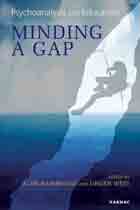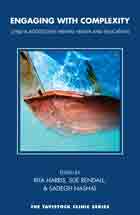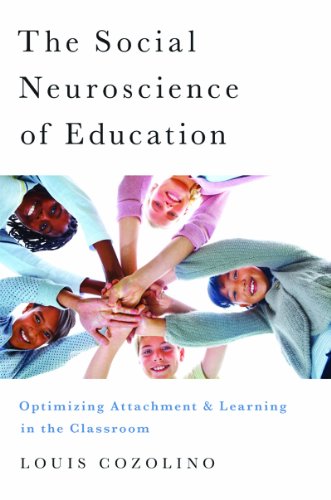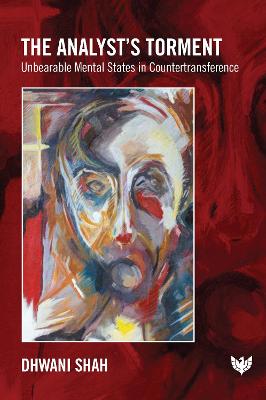Psychoanalysis and Education: Minding a Gap

Book Details
- Publisher : Routledge
- Published : 2012
- Cover : Paperback
- Pages : 288
- Category :
Psychoanalysis - Catalogue No : 32304
- ISBN 13 : 9781780490458
- ISBN 10 : 1780490453
There are currently no reviews
Be the first to review
This book provides a unique and highly topical application of psychoanalytic theory to the broad context of education, including schools, universities, and adult learning. Education is understood as a crucial element in a lifelong project to gain more coherent and meaningful understanding of self and others. Psychoanalysis has taken the contingency, construction, and development of human subjectivity, as well as the difficulty of thinking, to be its prime preoccupation. Yet – at a time of increasing doubt and anxiety about the purposes and practice of education – psychoanalytic understanding, from various traditions, has never been more marginal in educational debate.
The book seeks, in these terms, to bridge some of this gap: it is written for teachers, trainers, policy-makers, clinicians, researchers, and diverse academics who want to look beyond bland superficialities to deeper struggles for self and understanding. This includes unconscious processes in the relationships that constitue education as well as resistance to new ideas and practices. The intention of the book is to move towards bridging a fundamental gap in the conceptual imagination required for everyday understanding of what is really going on in educational settings: one where the experiencing subject is at the centre of our deliberations.
Reviews and Endorsements
'Education continues to be a struggle to unite heart and brain, to enthuse as well as to inform, and to find ways to ensure that learners have the intellectual skills and emotional capacities to deal creatively with their world. Psychoanalysis and Education is a major new collection that offers a grounded and thoughtful, yet also polemical, account of how psychoanalysis can facilitate this project. The liveliness and sophistication of the book will make it an important landmark for a renewed critical educational practice.'
- Stephen Frosh, Professor of Psychosocial Studies, Birkbeck, University of London
'The capacious nature of education that Freud admitted to his theories is affected by the dynamic unconscious. It brings the invitation to go behind the scenes of teaching and learning as signifying an emotional situation that is difficult to know. This superb collection of international authors opens the dream work of education to its "other scene" and presents novel research that enlivens the contemporary field of psychoanalysis and education. Through case studies, debates on clinical valence, and diverse theoretical discussions, readers meet creative new approaches to old teaching and learning conflicts.'
- Deborah Britzman, Distinguished Research Professor, psychoanalyst and author of Freud and Education
'With the resurgence of educational interest in matters of affect, desire, and the psychic dynamics of learning and teaching, this volume is timely. Psychoanalytic perspectives have been ignored or dismissed in mainstream educational writings for much too long. Alan Bainbridge and Linden West offer here a remarkable collection of essays revealing what are so often invisible in educational encounters: the complex relational dynamics - beyond consciousness - involved in "particular becomings".'
- Tara Fenwick, University of Stirling
'For the twenty years I have been involved in University-led initial and continuing teacher education, I have been a proponent of reflective practice. However, I have been bamboozled by student questions such as, "What is reflection?", "Reflect about what?", and "How can I learn to reflect?". This book provides some answers. Learning is uncomfortable, it challenges one's own existing knowledge, experience, and assumptions. The authors point out that a psychoanalytic approach is not equivalent to therapy - it is about uncovering the barriers to learning borne from personal experience, socio-cultural influences, pre-determined expectations, and the challenges of learning to self-perception. It is not a quick read - it is demanding on concentration, and is at times challenging, but has the potential to influence education practices in the future.'
- Professor Kit Field, Dean of the School for Education Futures, University of Wolverhampton
About the Editor(s)
Alan Bainbridge is a doctor of clinical science and previously taught in secondary schools for almost twenty years before moving into higher education, where he is a senior lecturer in education. In recent years, he has become more convinced of the value of using psychoanalytic ideas and language to explore educational settings. His interests are in the application of psychoanalytic thought and practices to education in its widest sense. Alan's recent research has focused on early intervention mental health programmes and the career pathways of education professionals. He has written chapters on children's learning and development, and contributed to general psychology texts. Together with Linden West, he has edited and contributed to Cliopsy, 6 (2011), an electronic journal published by Paris Ouest Nanterre University, France, on psychoanalysis and education. He is a UKCP registered psychoanalytic psychotherapist and has a small private practice.
Linden West, PhD, FRSA, is a professor and Director of Research Development in the Faculty of Education at Canterbury Christ Church University, Kent, UK, and Visiting Professor at the Paris Ouest Nanterre University, France. His books include the highly acclaimed Beyond Fragments; Doctors on the Edge and Using Life History and Biographical Approaches in the Study of Adult and Lifelong Learning; and co-author of Using Biographical Methods in Social Research. He has been co-editor of the journal Cliopsy, and is author of diverse articles and chapters on themes such as managing change and transitions, on learning in families, communities, and professional contexts, and on psychosocial perspectives and how these can inform understanding of the construction and experience of selfhood. He has written widely on the use of auto/biographical methods in research. His writing is translated into many languages, including French, Italian, Spanish, Chinese, and Polish. Linden co-ordinates a European Life History and Biographical Research Network, and is also a qualified psychoanalytical psychotherapist.
Customer Reviews
Our customers have not yet reviewed this title. Be the first add your own review for this title.
You may also like
The Social Neuroscience of Education: Optimizing Attachment and Learning in the...
Louis Cozolino
Price £27.00
The Analyst’s Torment: Unbearable Mental States in Countertransference
Dhwani Shah
Price £24.29
save £2.70







